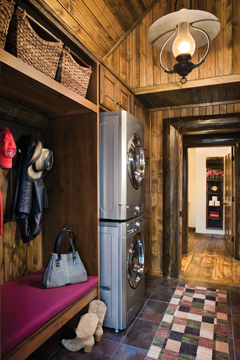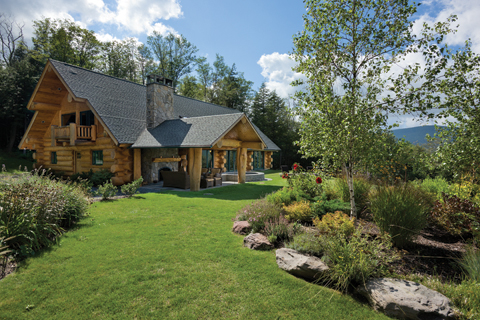Go Blue to Go Green
Although 70 percent of the earth is covered by water, less than one percent of that is available for human use. On average, Americans use 80 to 100 gallons of water each day—more per capita than people anywhere else in the world. With at least 36 states facing water shortages by 2013, it makes sense to conserve water. Small changes around your house can make a big difference. You’ll save money on your water bill, and you’ll reduce the amount of pollution going into local lakes, rivers, and streams.
Conserve
Cut back. It’s easy to cut back on the amount of water you use by making a few simple changes to your routines. Make it a habit to turn off the faucet while you are brushing your teeth or shaving. Use the garbage disposal less frequently. Take shorter showers—cutting a minute or two from your shower time can save up to 150 gallons of water each month. Run your clothes and dishwashers only when they are full.
Look for leaks. Periodically check your faucets and pipes for leaks—on average, American homes waste more than 10,000 gallons of water each year due to leaky faucets and running toilets. You can test your toilet for a leak by putting a few drops of food coloring in the tank. If (without flushing) you see the color begin to seep into the bowl within 30 minutes, you have a leak.
New appliances. If you are investing in new fixtures and appliances, look for the Environmental Protection Agency’s WaterSense label. Choose low-flow or dual-flush toilets, low-flow showerheads, and Energy Star®-certified dishwashers and clothes washers. The cost is comparable to traditional fixtures, and Energy Star-rated washers use 35 to 50 percent less water per load. Consider installing a tankless hot water system so you can stop wasting water while waiting for your shower to warm up. And don’t forget simple aerators for your faucets! They’re inexpensive and easy to install. In some areas of the country, homeowners are offered rebates for installing water-saving appliances, so check to see if you qualify.

Expedition Log Homes/photo by Roger Wade
Watch outdoor use. Outdoor water use accounts for half of household water use in some parts of the United States, so it’s a good place to look for savings. Outside your home you can use less water for irrigation by landscaping with drought-resistant plants, including using trees, shrubs, and groundcovers instead of grass where possible. Keep your grass longer to allow your lawn to retain more water.
Use an irrigation system with a timer to avoid overwatering, and water in the morning or evening. Keep your garden beds covered with a layer of mulch to help plants retain water. If you have a pool or spa, be sure to use covers to minimize evaporation and check for leaks. Pool covers can reduce evaporation by up to 95 percent! Remember to check your irrigation system for leaks, too.
Recycle
Rainwater. You can easily recycle or repurpose water for outdoor use. If you have a swimming pool, fountain, or pond, make sure it has a recirculating pump. Use rainwater to water your plants by capturing rainfall runoff from your roof in a barrel. Look for rain barrels with child-proof covers and screen traps to keep out mosquitoes. Rainwater can also be used in toilets, laundry, and for washing your car.
Graywater. Another way to reuse household water is to recycle graywater (wastewater from household baths and washing machines). Graywater is responsible for about 75 percent of the flow to sewers, so reusing that water can dramatically ease the demands on the sewage system. Installing a system to reuse graywater can be costly, but it’s worth considering. Most graywater systems have a diverter valve to separate water from toilets (blackwater), which is sent through the sewage system to a wastewater treatment plant. The graywater is then run through a filter and then treated with chlorine or iodine or used as-is. Graywater can be used to irrigate landscaping, and in some instances can be used for flushing toilets, but it is not recommended for household use. If you plan to reuse the graywater from your home, it’s recommended that you stop using bleach and other harsh cleansers.
Water Checkup
Are you using water wisely? Water is only going to get scarcer and more expensive, so now is a good time to think about using it efficiently. You can calculate your water use, including “virtual water” used to make the items you use, with an online calculator like www.waterfootprint.org or www.h2oconserve.org. Once you know how much water you are using, you can start taking steps to conserve and reuse water in your home.
Photography by Roger Wade Studio

